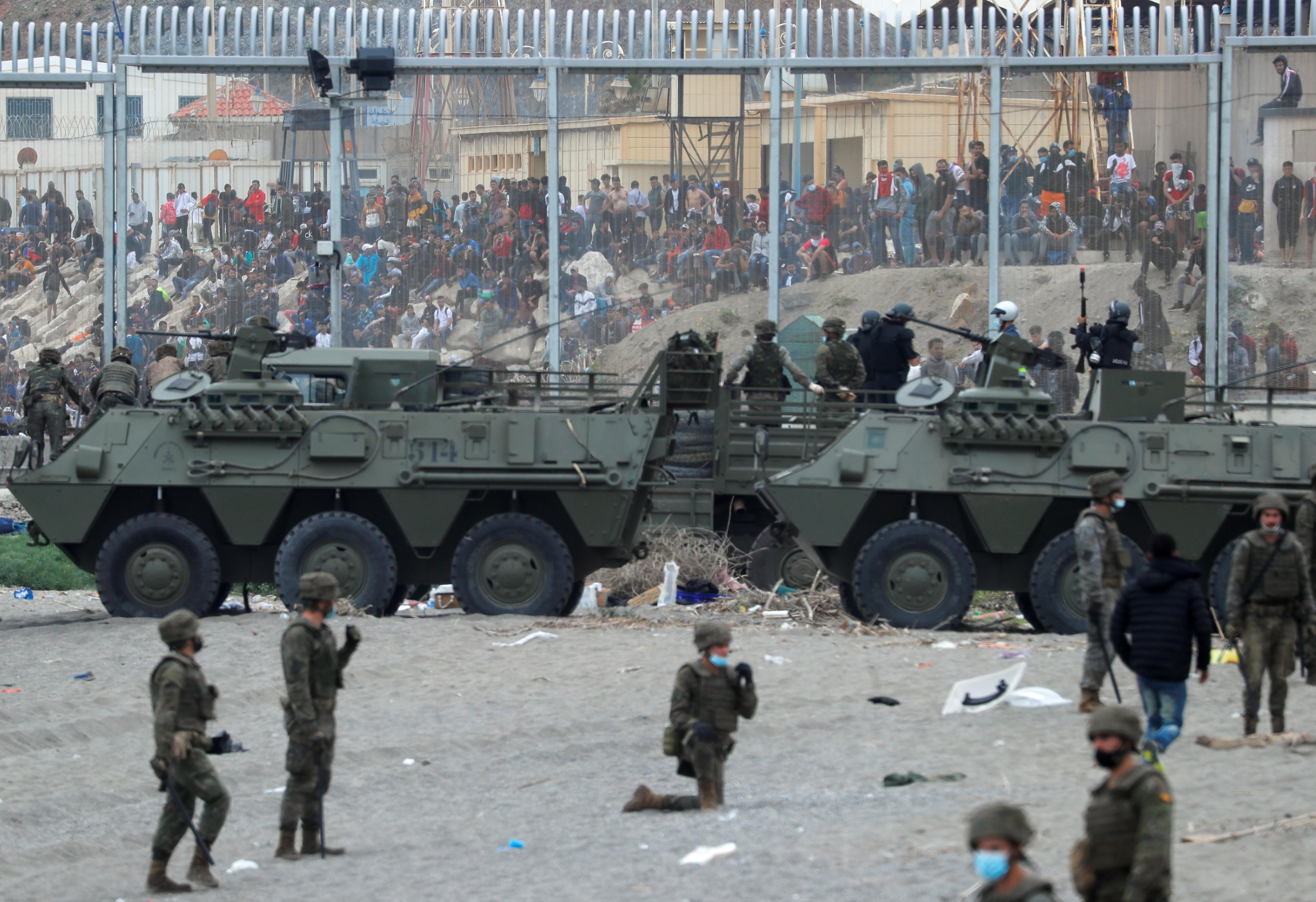Morocco punishes Spain with... migrants: Spain has sent in the army to help defend the border in Ceuta, a tiny Spanish enclave on the Moroccan coast, after more than 8,000 migrants crossed over in just two days. Spanish border guards say that Morocco facilitated the migrants' departure, most of whom are Moroccan nationals, to punish Madrid for meddling in Morocco's internal affairs over Western Sahara. Last month, Madrid allowed the leader of the pro-independence Polisario Front to seek treatment for COVID in a Spanish hospital, infuriating Rabat, which claims the former Spanish colony of Western Sahara as part of its territory. The Moroccans, for their part, deny involvement in the mass exodus, and on Wednesday closed the border. However, that seems questionable given that Morocco has traditionally overreacted to any hint of Spanish support for Western Saharan independence. But Spain won't want to rock the boat too much because it needs Morocco's help to stop African migrants flooding into Ceuta and Melilla, the other Spanish enclave in Morocco. If the spat is not resolved soon, the European Union may have to step in to mediate because once the migrants are on EU soil, they are free to travel to other EU countries.
Belarusian police given go-ahead to shoot protesters: Seven months after Belarusians took to the streets in huge numbers to protest Alexander Lukashenko, Belarus' strongman president, who is widely believed to have rigged last year's national elections, Lukashenko has signed a bill allowing police to shoot protesters in the street. The new law is part of a broader package of legislation passed by the lower house in April that aims to stifle anti-government dissent and restrict civil rights after nearly a year of unrest. Importantly, under the new laws, police can draw up suspected "extremist lists": once a person is on such a list, they can be banned from vocations including journalism and teaching — and their finances can be surveilled by the state. To date, most politicians who have challenged Lukashenko's three-decade rule are now either in exile or have been thrown into jail. Though the US and EU have slapped sanctions on Belarus and called for fresh elections, Lukashenko does not seem to be deterred at all.
Argentina's beef crisis: In a bid to address soaring food prices and rising inflation, Argentina's government on Tuesday
banned all beef exports for 30 days. It's a massive deal given that Argentina is one of the world's biggest exporters of beef, shipping around $3 billion worth in 2020, 70 percent of which went to Chinese markets. President Alberto Fernández wants to lower domestic beef prices that have soared in recent months, but some critics say that the "emergency measure" was politically motivated (Fernández desperately wants beef prices to drop ahead of midterm legislative elections this fall). Argentina, which was already suffering from sky-high inflation before the pandemic, has been
pummeled by rising global
food prices and COVID-related supply chain disruptions: retail beef prices in Buenos Aires increased
65 percent over the past year. Fernández is now betting that reducing costs for the meat-obsessed Argentine population will offset any blowback from the lost export dollars. Come October, we'll know if his approach paid off.
